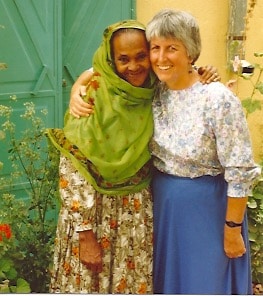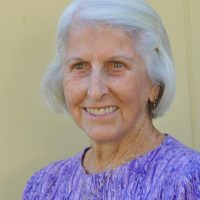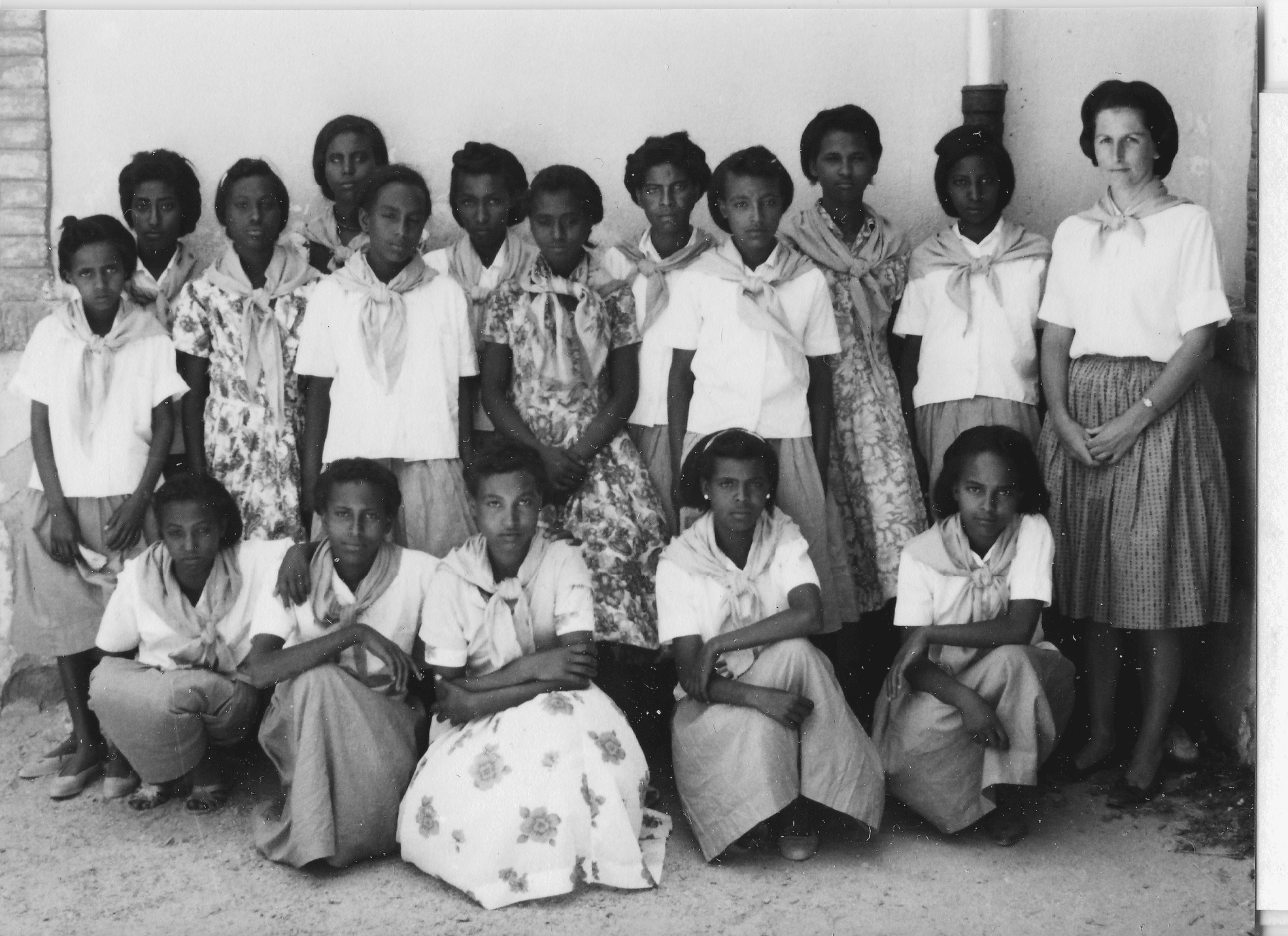I first noticed Mhret and her son Tefera in October 1964 when they arrived by bus in Adi Teclesan, the village in Eritrea where my husband, Wayne, and I were Peace Corps teachers. In the crowd of arriving and departing passengers, they stood together holding hands, a young mother in a nylon print dress and plastic shoes waiting with her four-year-old son while their wooden footlockers were carried down from the roof of the bus. I continued on my errand to buy a quarter kilogram of blue laundry detergent powder and some onions, not knowing yet who they were.
Ghebrecristos, Mhret’s husband, taught with us at the elementary school and also gave us Tigrinya language lessons twice weekly. Once their household was settled, he invited us for tea to meet his wife and son—surprise, the pair waiting by the bus!
This was the first of many mutual invitations, and Mhret and I were soon calling each other haftei, my sister. We joined a women’s club that met weekly to drink coffee and contribute to purchasing eyeglasses for needy students. She introduced me to many Tigrinya words, often demonstrating them in pantomime: for t’el, she put her index fingers by her forehead and bleated like a goat. She insisted that I needed a mogogo, the traditional oven for cooking fermented sourdough pancakes and simple unleavened bread, so she built one in our backyard and showed me how to use it.
We often had tea together after school, and one day she surprised me by saying in Tigrinya, “When I have another child, I will name it for you or Wayne.” In a flash I imagined the difficulty a boy would have with the name Wayne, so similar to a girl’s name, Weini, meaning grape or wine, or a girl with Laurie, sounding exactly like lorry, British for truck. But I blurted—no chance to consult Wayne, “If we have a daughter, we’ll name her for you.”
Sadly, Mhret didn’t have another child; however, seven years later, our daughter, Joyanna Meherette was born in California. We chose Joyanna because she was born on our wedding anniversary and Meherette to honor my promise.
Following Eritrea’s liberation from Ethiopia in 1991, Joyanna visited Eritrea in 1994 to meet Mhret. They exchanged traditional kisses on both cheeks—but this time way more than the usual three times—and “Welei! Kame alohi?” (My goodness! How are you?). Mhret at last knew her namesake.

That same summer, I returned to Eritrea in 1994 to volunteer for the Ministry of Education and stayed at Mhret’s home for seven weeks with Ghebrecristos, their daughter-in-law, and their four grandchildren. They had moved to the capital city, but she continued many village ways: she washed clothes by hand, cooked over a single kerosene burner, made coffee over charcoal, and had her hair braided in tiny rows close to her scalp. She also enjoyed city conveniences: a single water tap in the compound and an electric mogogo for baking the sourdough pancake bread.
One evening, Mhret clasped my hand as she pulled her translucent shawl over her face, looked down at her lap, and shed silent tears. Sitting on low stools on her patio, we were looking at photos of her son, Tefera, who was living in our city in California. A star player on the Ethiopian national team, he had gone there in 1991 to earn a soccer coaching license. Mhret wondered when and if she would see her only child again. Her diabetes—which occasionally put her in the hospital—certainly gave her reason to worry.
Impressed by Eritrea’s vision, Wayne and I lived in Asmara from 1995 to 2002. Mhret and I continued to call each other haftei. She welcomed us and various friends from California, serving tea or coffee and delicious traditional meals. For us she purchased wheat and corn at the market, picked out the chaff, and had them ground into cornmeal and whole wheat flour. Just as she did favors for us, I would do one for her—carrying homemade berbere (powdered hot red pepper and spices), shiro (a powder of garbanzo beans, onions, garlic, and berbere), and dried sourdough pancake bread to Tefera. He had earned his professional coach’s license and, by our return to California, he had not yet been back to Eritrea and his family. Until Tefera returned to Eritrea in 2005, I lamented that I was not with Mhret to hold her hand again as she longed for him.




